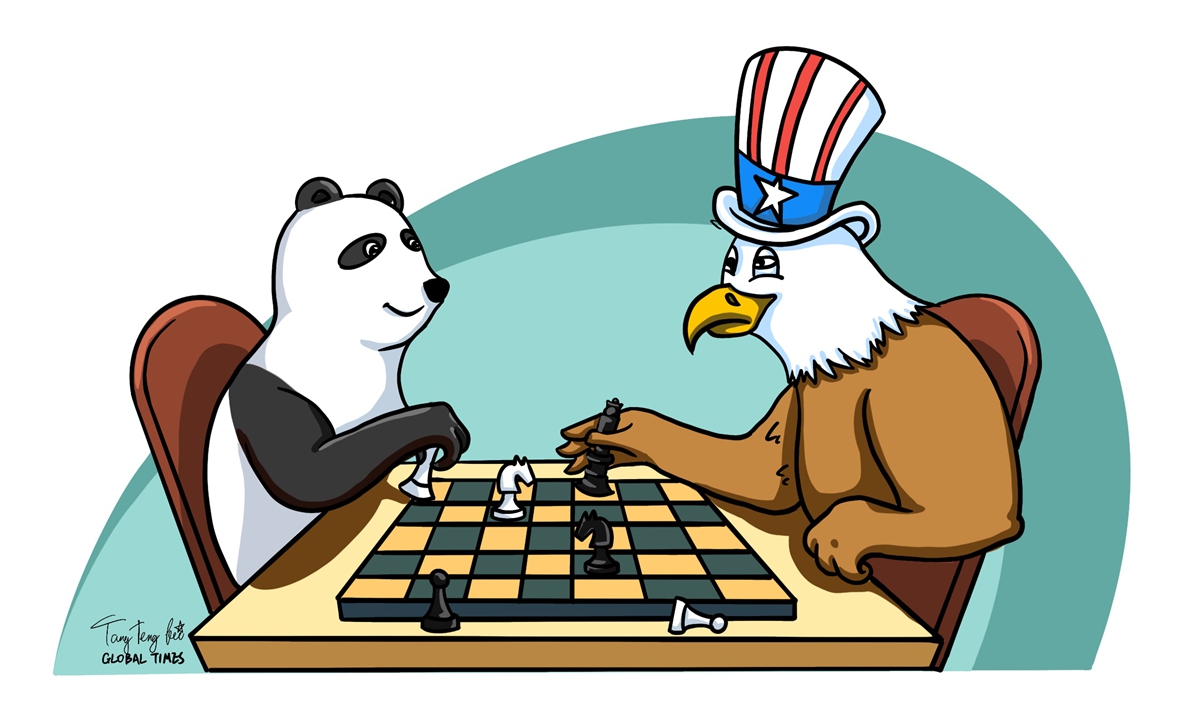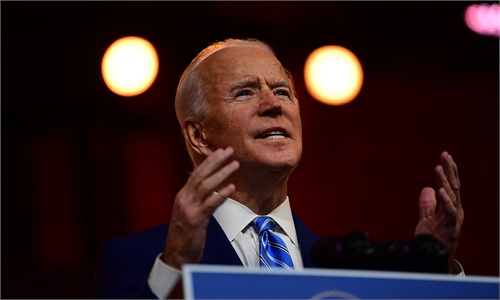COMMENTS / EXPERT ASSESSMENT
Offensive or not, Biden’s trade policy would be more risk-predictable

Illustration: Tang Tengfei/GT
The US President-elect Joe Biden is forming his new team to lead the world's largest economy as his presidency inauguration ceremony in January draws nearer. On the list, Katherine Tai is reportedly set to be nominated as the US Trade Representative. She is known for her expertise on China and advocating for "offensive elements" in dealing with China. Offensive or not, the Biden Administration's trade policy is likely to revert to a more controllable path with predictable risks.Citing anonymous sources, the Wall Street Journal reported that Biden plans to pick Tai, the chief trade counsel for the Democrats on the House Ways and Means Committee, to take over Robert Lighthizer.
Tai is an experienced trade lawyer with rich experience in dealing with trade policies with China. Disagreeing with Trump's China policy, she described as it "largely defensive", claiming that a good trade policy has to have offensive elements.
At a time when the world's two largest economies have gone through bitter trade disputes, media reports saying that the offensive policy proponent will be a key role in directing the US' foreign trade policies has raised concerns that whether the China-US trade war will be heated up.
In fact, Tai's stance is more in line with the proposition of the US Democratic Party which has labeled Trump's tariff policy as hurting US economy as well. Recently after the inking of the mega free trade deal the Regional Comprehensive Economic Partnership (RCEP), Biden told reporters that the US should be aligned with its allies and "set the rules of the road".
Throughout the China-US trade war, China is not the only side who has suffered. It caused a net loss of 175,000 US manufacturing jobs by the middle of 2019, according to Reuters who cited analysis by economic experts.
With Biden showing an intention to return to multilateralism, the new US administration may transfer its battleground with China from tit-for-tat tariff slapping to, for instance, focus more on rule-making through international systems. Though the wrestling of the world's two largest economies will likely persist, it does not mean that the two sides will again ratchet up confrontation.
In contrast to Trump's unilateralism, a Biden administration's trade policy with China would be more under control with predictable risks. Meanwhile, as Biden may enter the White House with record-high COVID-19 infections numbers across the country and an economy in doldrums, he has underlined his priorities as being virus containment and economic recovery which is set to be a daunting job for his newly assembled team.
Although Tai has been regarded as a person who could help Biden to start working swiftly on trade issues, it takes time, especially for nation-level talks.
As for China, its path is consistent and clear. Chinese State Councilor and Foreign Minister Wang Yi recently said during a video conference with the US-China Business Council board of chairs that China and the US should work in a direction that serves the common interests of the two countries and peoples, so that the two can resume dialogue, bring relations back on track and rebuild mutual trust with a view to the next stage of bilateral relations.
Although there are challenges, mending bilateral ties through managing differences on the basis of mutual respect and expanding cooperation based on mutual benefit will bring in benefits for not only the two countries, but the whole global economy which has been ravaged by the Covid-19 pandemic.
The article was compiled based on an interview with Gao Lingyun, an expert from the Chinese Academy of Social Sciences in Beijing closely following the China-US trade tensions. bizopinion@globaltimes.com.cn



